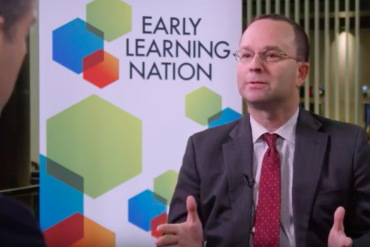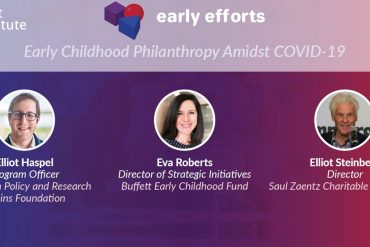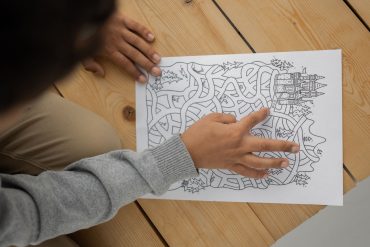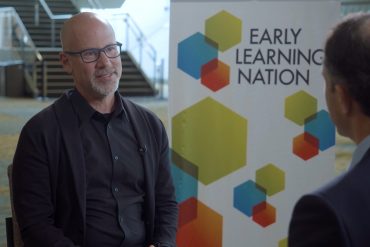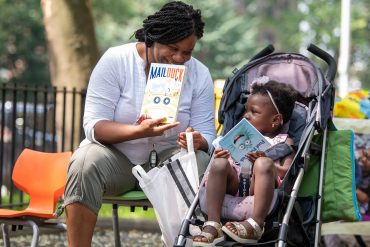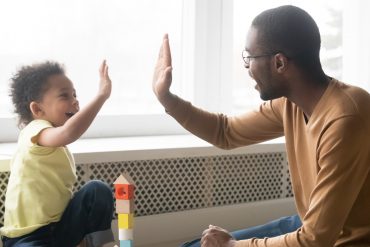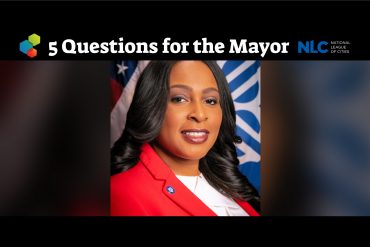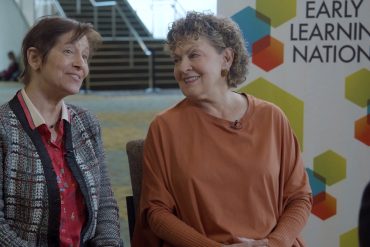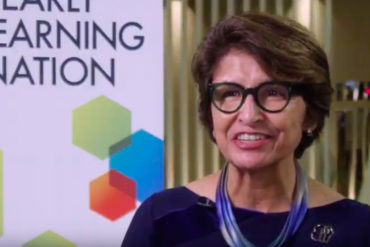Many business leaders realize: If you want to secure the workforce of the future, it makes sense to start at the beginning of “the supply chain.” And that’s early learning.
Because we can’t take our Early Learning Nation Studio on the road during this time, stay tuned as ELN recaps...
The New Year, with its metaphor of clear vision, calls out to all of us to think about the future; to envision a better world for children, youth, and families. While we can’t predict what the decade will bring, we can use what we have learned over the years—and our common sense—to set some goals and move forward. Here is what I see and hope for in a new year, in a new decade.
According to New America’s recent “Lost in the Labyrinth” report, “Families with the youngest children stand to gain the most...
When University of Maryland Associate Professor Geetha Ramani and her colleagues visit early learning classrooms, they’re known as the “game people.” Ramani’s research shows not only the importance of teaching math skills, but also the effectiveness of what might seem like an obvious tactic: Make it fun.
Turning NYC into an Early Learning Metropolis
Robin Hood’s Kelvin Chan on FUEL’s Investments in the Youngest New Yorkers
Shortly after Kelvin Chan, PhD, managing director of Early Childhood at Robin Hood, gave a SXSW presentation on Fund for...
Praise is a funny thing. Words of acknowledgment can be the water and sunshine that help children grow into sturdy,...
Where do you go for the top news in Early Learning at the municipal level? Check out “5 Questions for the Mayor,” where we’ll explore the top Early Learning challenges and successes in cities across the nation. We’re thrilled to partner with the National League of Cities on this new series.
According to Roberta Michnick Golinkoff & Kathy Hirsh-Pasek – researchers and co-authors of “Becoming Brilliant, What Science Tells Us About Raising Successful Children” – language is the single best predictor of how young children will do in school. That’s why they’ve created an innovative, easy way for practitioners to measure students’ verbal progress. Filmed for Early Learning Nation’s Mobile Studio at the Society for Research in Child Development’s biennial meeting in Baltimore, MD, on March 22, 2019. #SRCD19
An Electoral “Children’s Wave”
Q&A with Children's Funding Project Founder Elizabeth Gaines
On November 3rd, seven early childhood ballot initiatives went before voters in cities and counties around the nation. All seven...
How does Girl Scouts of America start shaping young girls into strong, successful adults? As CEO Sylvia Acevedo describes, it begins with early education.
The Covid-19 pandemic ushered in unprecedented federal spending in the child care industry. When schools and child care programs shut...


